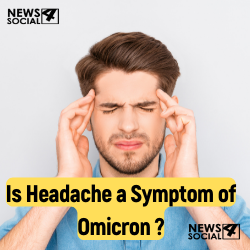Is Headache a Symptom of Omicron?
The Washington State Department of Health recently released data on the symptoms of Omicron. Of these symptoms, headache is the most common one, affecting nearly 65 percent of people with the disorder. But headaches can be caused by many factors, including stress. To better understand why people with Omicron may suffer from headaches, doctors explain why some patients do. And if you’re wondering whether a headache is a symptom of Omicron, read on.
Some symptoms associated with Omicron have been associated with a lower risk of hospitalization. These symptoms include cough, fever, and aches and pains. Other symptoms are similar to a regular cold, including lower back pain and brain fog. While there are no definitive symptoms, doctors are paying more attention to these signs and symptoms in the hope that they’ll be able to identify people with Omicron more quickly.
Another common symptom of Omicron is a sore throat. This is a common complaint among adults in their late 20s and early 30s. But this is usually a mild case with no lasting effects. In addition to the sore throat, people with this ailment often experience difficulty swallowing. The other typical covid symptom is a runny nose. However, runny nose is a symptom that may be associated with seasonal flu or allergies.
While the symptoms of Omicron are similar to those of other variants of the virus, they are generally less severe. Although headache is a common symptom, it may be milder and more noticeable in some people. It can range from a dull twinge to a full-blown migraine, and can occur anywhere on the face or over the cheekbones. And while the symptoms are not always consistent, they are definitely worth considering if you are at risk.
Other symptoms of Omicron infection are milder than in the previous variants. The symptom of headache can be anywhere from a minor twinge to a severe migraine. According to Dr. Schaffner, the headaches associated with this condition are most likely frontal and forehead-based. The pain may also affect the sinuses and cheekbone. It’s important to see your doctor as soon as you notice symptoms of Omicron.
The symptoms of Omicron include a headache and a runny nose. A few other common symptoms of this disease include fatigue, sore throat, and fatigue. A person may experience any or all of these symptoms, but it’s important to note that the most common ones include the following. The earliest signs of this infection are sneezing, coughing, and a stuffed-up nose.










